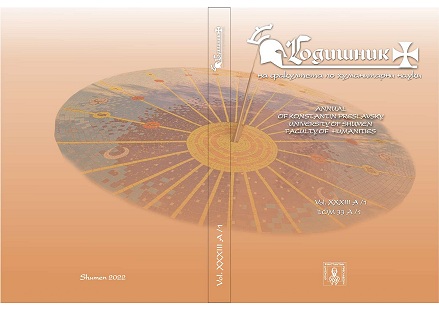ФУНКЦИЯ НА СЪЮЗИТЕ А, НО И ОБАЧЕ ПРИ ИЗРАЗЯВАНЕ НА ОТСТЪПИТЕЛНО ОТНОШЕНИЕ В БЪЛГАРСКОТО ИЗРЕЧЕНИЕ
FUNCTION OF THE CONJUNCTIONS А, NО, AND OBACHE WHEN EXPRESSING CONCESSIVENESS IN BULGARIAN SENTENCE
Author(s): Todorka Georgieva, Donka IlievaSubject(s): Language studies, Language and Literature Studies, South Slavic Languages
Published by: Шуменски университет »Епископ Константин Преславски«
Keywords: conjunctions; semantic relations; concessional relations; Bulgarian sentence
Summary/Abstract: The article, which is part of a larger study, examines the functions of the polysemantic opposing conjunctions “a”,“но” and “обаче” when expressing concessional relations in the Bulgarian language. The existence of a certain opposition between events in objective reality creates conditions in the sentence, where the concessional semantic relation has to always be accompanied by opposing semantic relations. The observation shows that the conjunctions “a”, “но” and “обаче” function as active shapers of concessional-opposing relations, and in some cases meaning “when”, “though” or “although”, whereas in other cases their semantics is supplemented by the use of a circumstantial phrase, introduced by a genuine concessional conjunction or pretext.
Journal: Годишник на Шуменския университет "Епископ Константин Преславски". Факултет по хуманитарни науки
- Issue Year: XXXIII/2022
- Issue No: 1
- Page Range: 86-91
- Page Count: 6
- Language: Bulgarian

